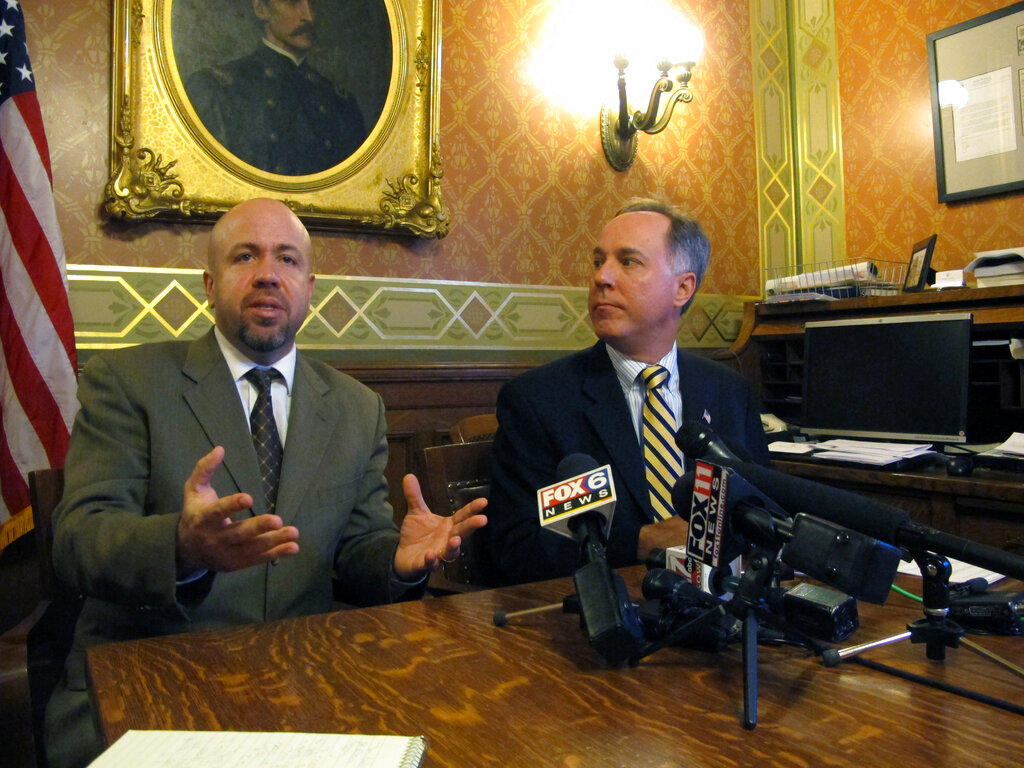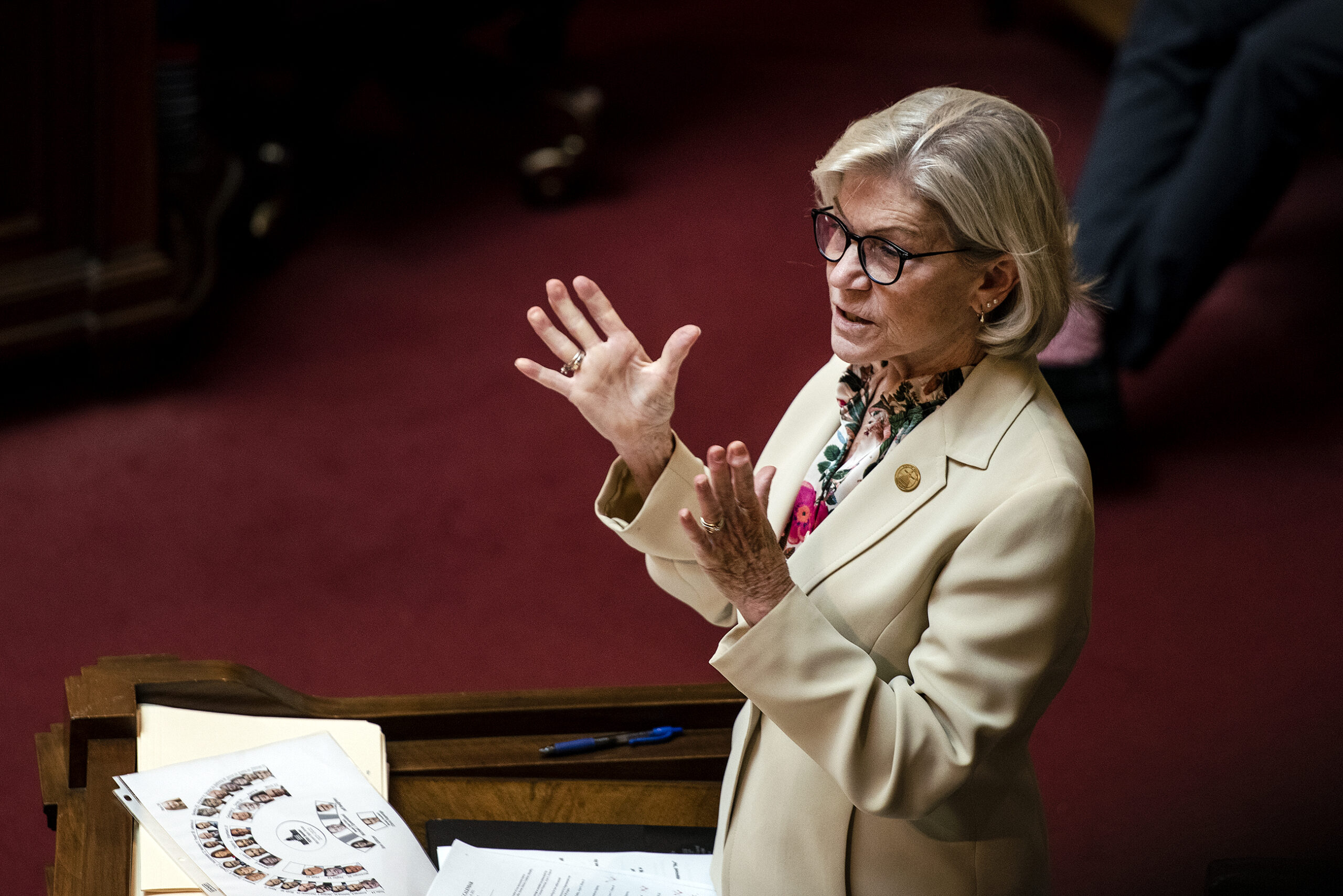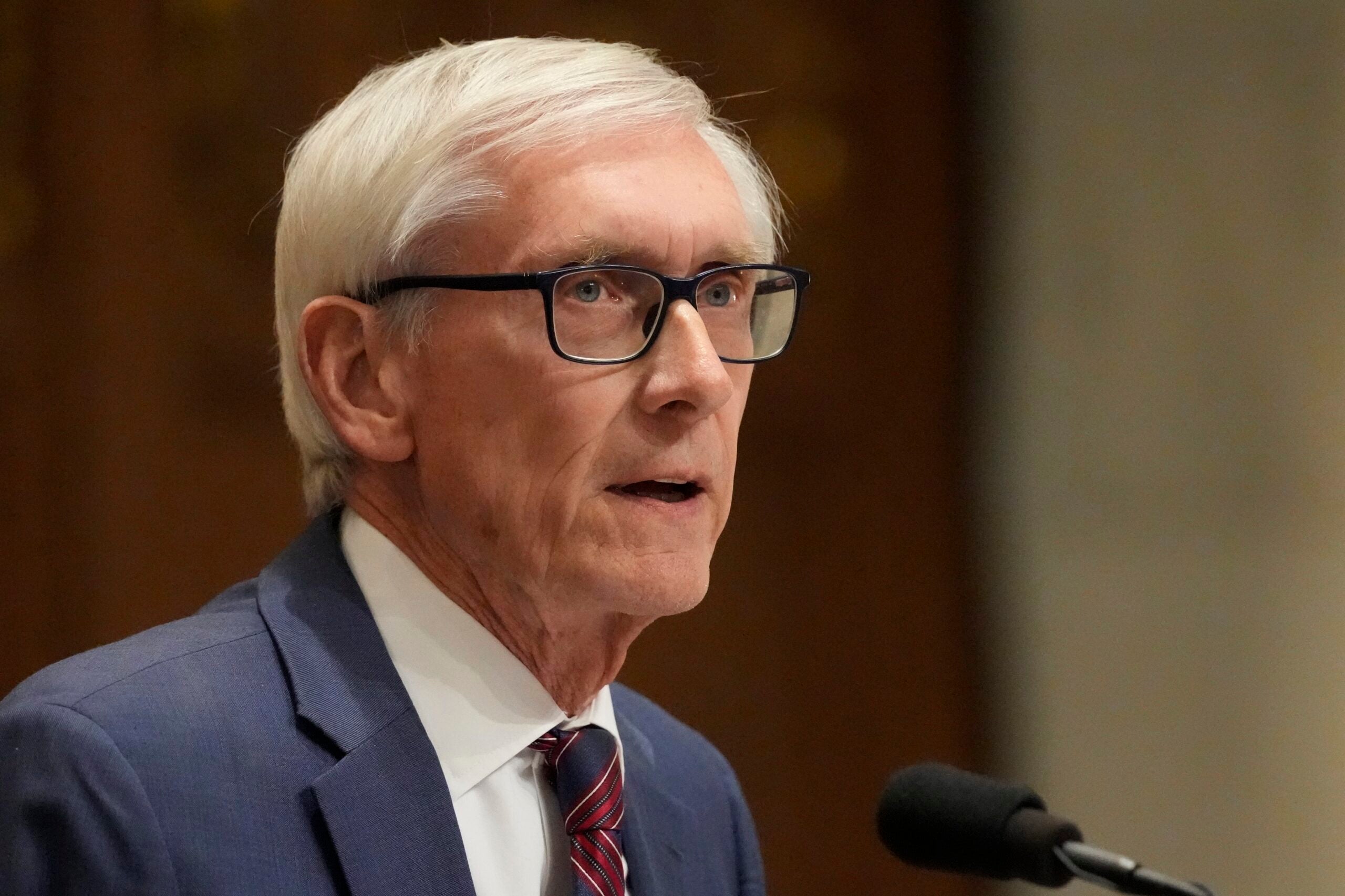With Wisconsin Republicans holding onto leads in both chambers of the state Legislature, two former leaders in state government explained Wednesday why they hope for and expect more bipartisanship in an era of new maps that enabled Democrat gains.
Jim Steineke, who previously served as the No. 2 Republican in the state Assembly before stepping down in 2022, told WPR’s “Wisconsin Today” that state Democrats “have a lot to be happy about, quite frankly,” for how they appeared to narrow GOP majorities in state government.
New legislative maps — drawn by Democratic Gov. Tony Evers and passed by GOP lawmakers under pressure from a liberal majority on the Wisconsin Supreme Court — meant Republicans would have a hard time holding onto the 64-34 majority they previously held in the state Assembly.
News with a little more humanity
WPR’s “Wisconsin Today” newsletter keeps you connected to the state you love without feeling overwhelmed. No paywall. No agenda. No corporate filter.
Results are still being tallied, but the Associated Press on Wednesday morning had Republicans with a 52-44 advantage in the Assembly, with three races still without called winners. Democrats made substantial gains in what had been the state Senate’s GOP supermajority by flipping some Republican districts. The state GOP had a 22-10 majority, but as of Wednesday evening the breakdown was 18-15 in favor of Republicans.
“It is going to be a brand-new session,” Steineke said. “It’s going to be very fascinating to watch how the two sides navigate this new relationship, the tighter majorities. Hopefully there will be more working across the aisle to get things done for the people of the state.”

Democrat Janet Bewley is a former state Senate minority leader who retired in January of last year. She told “Wisconsin Today” that she was “dismayed” to see that former President Donald Trump won his bid to return to the White House. But she was encouraged by some results in Wisconsin’s Legislature.
“We’re going to have to see negotiating,” she said. “And I think that that’s nothing but good. It’s a wonderful opportunity to again demonstrate how government can and should work. Even when we didn’t win as many seats as we had wanted, we are going to see a different state Assembly. And that’s very important. It’s going to give us some momentum.”
One legislative clash from state government this year was the GOP-controlled state budget committee refusing to release already approved funds to address PFAS contamination and other matters.
Would that change after this election?
Bewley said the state’s Joint Finance Committee is one area where Democrats will not be able to move the needle much. That’s because the majority party will continue to outnumber the minority 12-4 on that committee.
“We’re going to have to incrementally look at ways that the Legislature can possibly change some of the rules for (the committee) so that it is more fair,” she said. “It’s going to be hard to do that, but I think that (the committee) is going to have a grip on a lot of budget items going forward.”

In response to Bewley’s point, Steineke said the Joint Finance Committee exists under the framework of checks and balances, with the Legislature holding the purse of government.
He will be watching how Evers interacts with legislative leaders after this election, because he has been disappointed with what he said was a complete lack of negotiation between the governor and legislative leaders over the years.
In a recent conversation with Tommy Thompson, Steineke said the former Republican governor told him how on a given day he would bring in GOP leadership at 8:30 a.m., Democrat leadership at 10:30 a.m. and then everyone together at 1:30 p.m.
“We need to go back to something like that,” Steineke said. “We need to have constant communication so we can try to move things forward for the people in the state. Unfortunately, that hasn’t been happening. I hope it does start happening moving forward, given the results of this election.”
Editor’s note: This story was updated to reflect the latest numbers from the Associated Press.
Wisconsin Public Radio, © Copyright 2025, Board of Regents of the University of Wisconsin System and Wisconsin Educational Communications Board.







